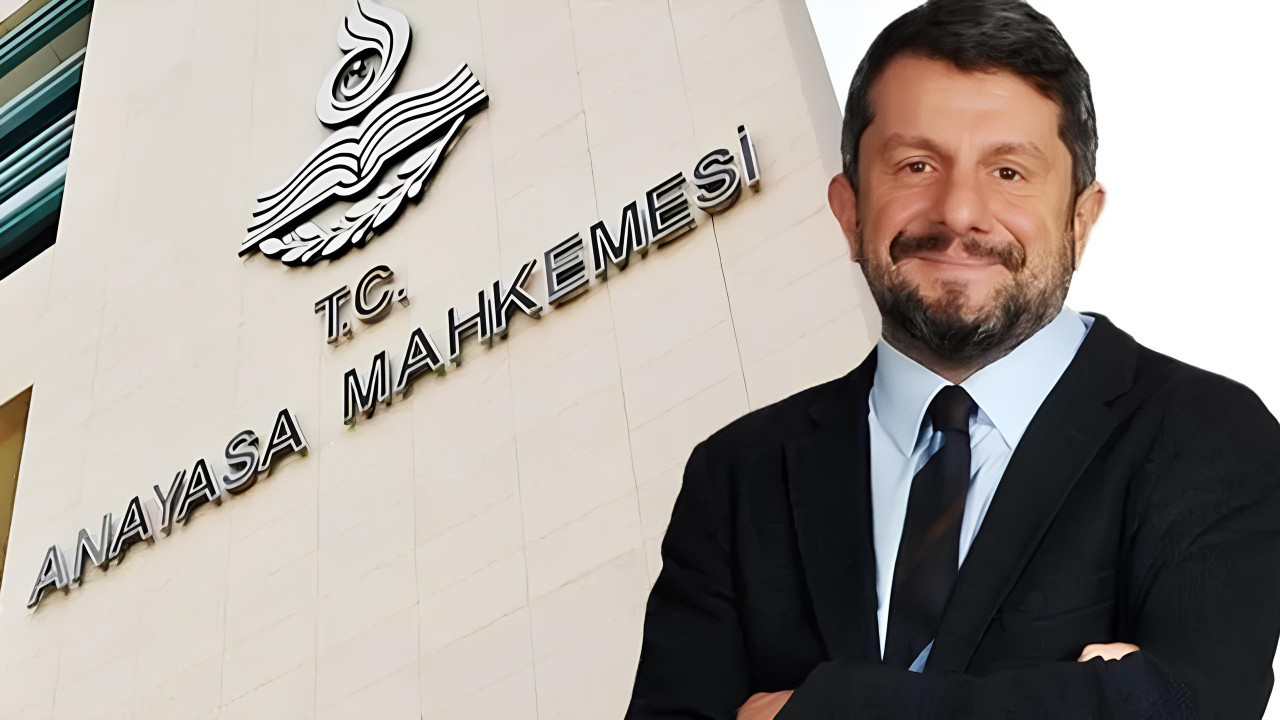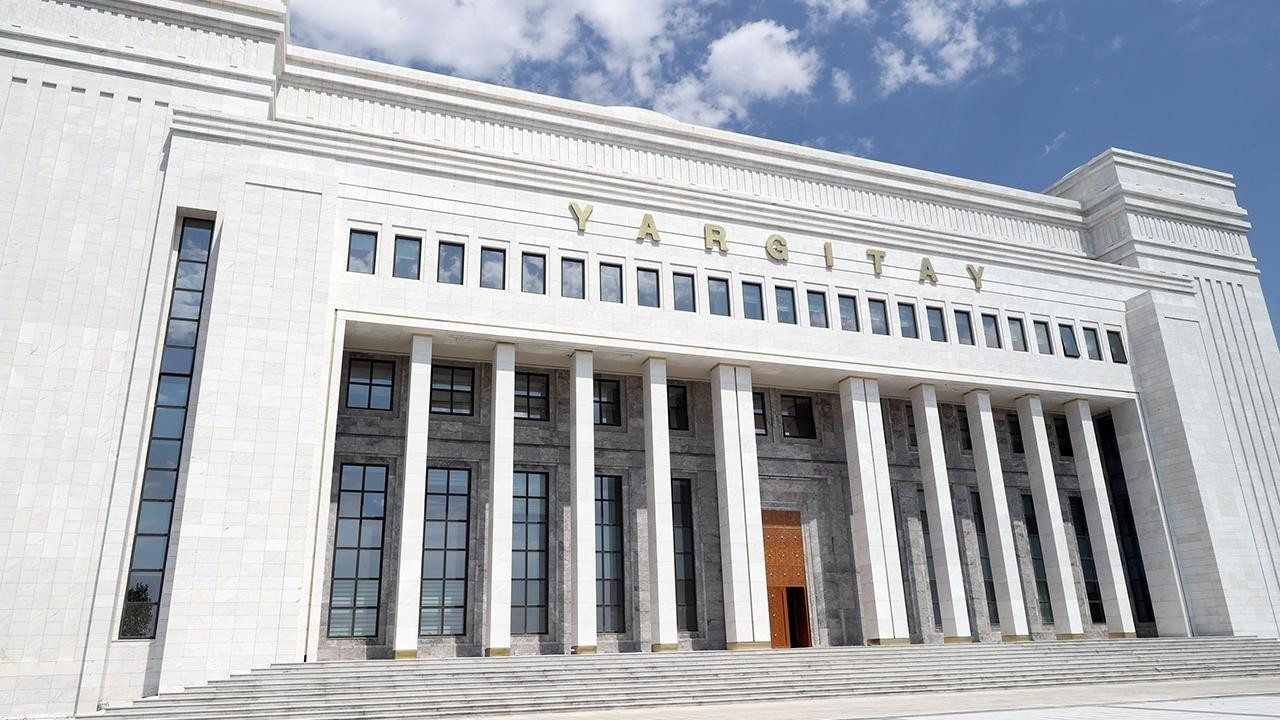Constitutional Court’s decisions binding even not desirable, Turkey’s top court president says
Speaking at the swearing-in ceremony of Yılmaz Akçil, the new member of the Constitutional Court (AYM), attended by President Erdoğan and the President of the Court of Cassation, AYM President Zühtü Arslan criticized the non-implementation of the top court’s judgments.
Duvar English
Turkey’s Constitutional Court (AYM) President Zühtü Arslan on Feb 8 criticized the non-implementation of the AYM’s decision and crisis with the Court of Cassation over MP Can Atalay’s release at the swearing-in ceremony of the top court's new member, Yılmaz Akçil.
Arslan spoke for the first time in front of President Recep Tayyip Erdoğan and President of the Court of Cassation Mehmet Akarca after the crisis in the judiciary regarding Atalay, against whom they issued a violation of rights decision which Turkey’s highest appeals court did not implement.
Akçil was elected to the Constitutional Court from the State Council quota and became the eighth justice appointed by Erdoğan.

In his speech, Arslan underscored that "Individual application is one of the biggest judicial reforms in the history of the Turkish judiciary."
He added, "When an individual application is made against a finalized judgment, the AYM is vested with the ultimate authority to interpret and apply the constitution. There is no constitutional and legal basis for not complying with the decisions of the AYM just because there are differences of opinion between them and the judicial decisions that have been finalized through appeal."
Despite AYM ruled for the release of Atalay twice, the Court of Cassation unconstitutionally refused to comply with the judgement. Turkish Parliament has recently revoked Atalay’s deputyship
“No one has the obligation to like the decisions of the AYM regarding the interpretation of the Constitution. However, even if we do not like them, it is a constitutional obligation to comply with these judgments in a state of law,” Arslan noted.
Arslan emphasized that if the judgments were not complied with, the principle of the rule of law would be undermined and the judgments would be meaningless.
Balance of Turkey’s high court’s to change in favor of Erdoğan
In the 15-member AYM, Erdoğan will appoint two more members in 2024.
According to the Constitution, the term of office of Arslan will end on April 17. Emin Kuz's term will also end on May 12. The three members whose terms ended in 2024 were appointed by then-President Abdullah Gül.
Arslan and Kuz were among the six members of the Supreme Court who took a "dissenting" stance and voted in favor of rights violations and the annulment of critical laws.
However, due to the departure of these two names, the number of dissenting members will decrease to four and it will be difficult for the AYM to issue decisions in favor of violations in critical cases.
As Arslan's term of office is due to expire, an election for the presidency of the AYM must be held by April. In last year's election, Arslan was re-elected president with eight votes, despite Erdoğan and then Justice Minister Bekir Bozdağ's favoring İrfan Fidan who received five votes.
Arslan and Kuz will be able to vote in the presidential election as their term of office continues.
The 10th Chamber of the Council of State, of which Erdoğan's latest appointment Akçil was the president, has recently made controversial decisions.
The chamber had signed the decision to transform Hagia Sophia from a museum to a mosque. The decision to terminate the Istanbul Convention on violence against women with President Erdoğan's signature was also found legal by the chamber headed by Akçil.
Making a statement at a time when the crisis in the high judiciary over Atalay's case was escalating, President Erdoğan supported the Court of Cassation and said, "The Constitutional Court has been making many mistakes one after the other."

 Top Turkish court chair accepts ‘long-standing, deep-rooted disagreement’ with AYM regarding Atalay’s releaseDomestic
Top Turkish court chair accepts ‘long-standing, deep-rooted disagreement’ with AYM regarding Atalay’s releaseDomestic Constitutional Court deems Court of Cassation's actions on MP Atalay case unconstitutionalDomestic
Constitutional Court deems Court of Cassation's actions on MP Atalay case unconstitutionalDomestic Top Turkish appeals court ignores Constitutional Court ruling, denies TİP MP Atalay’s release againHuman Rights
Top Turkish appeals court ignores Constitutional Court ruling, denies TİP MP Atalay’s release againHuman Rights Court of Cassation targets Constitutional Court after judicial crisis in TurkeyDomestic
Court of Cassation targets Constitutional Court after judicial crisis in TurkeyDomestic Top Turkish appeals court files criminal complaint against Constitutional Court justices regarding MP Atalay rulingDomestic
Top Turkish appeals court files criminal complaint against Constitutional Court justices regarding MP Atalay rulingDomestic